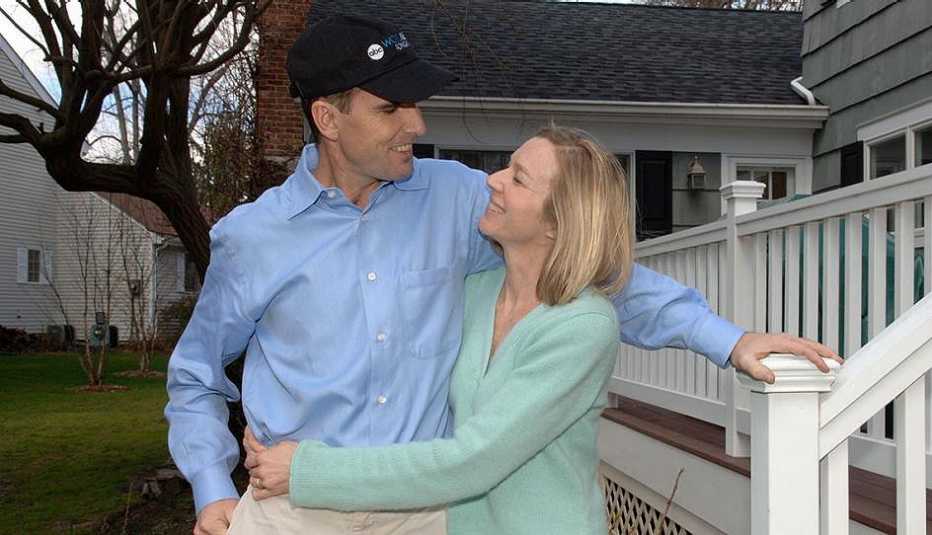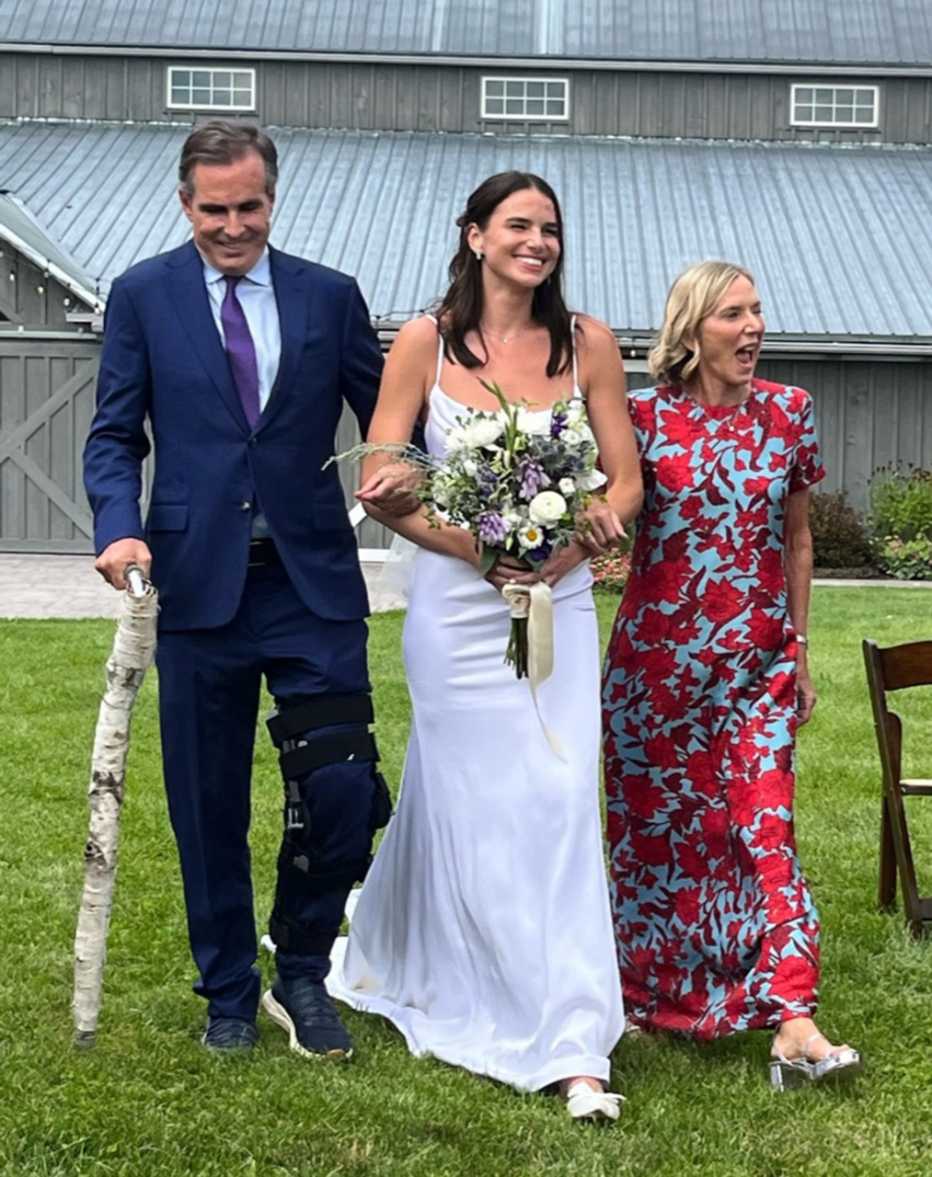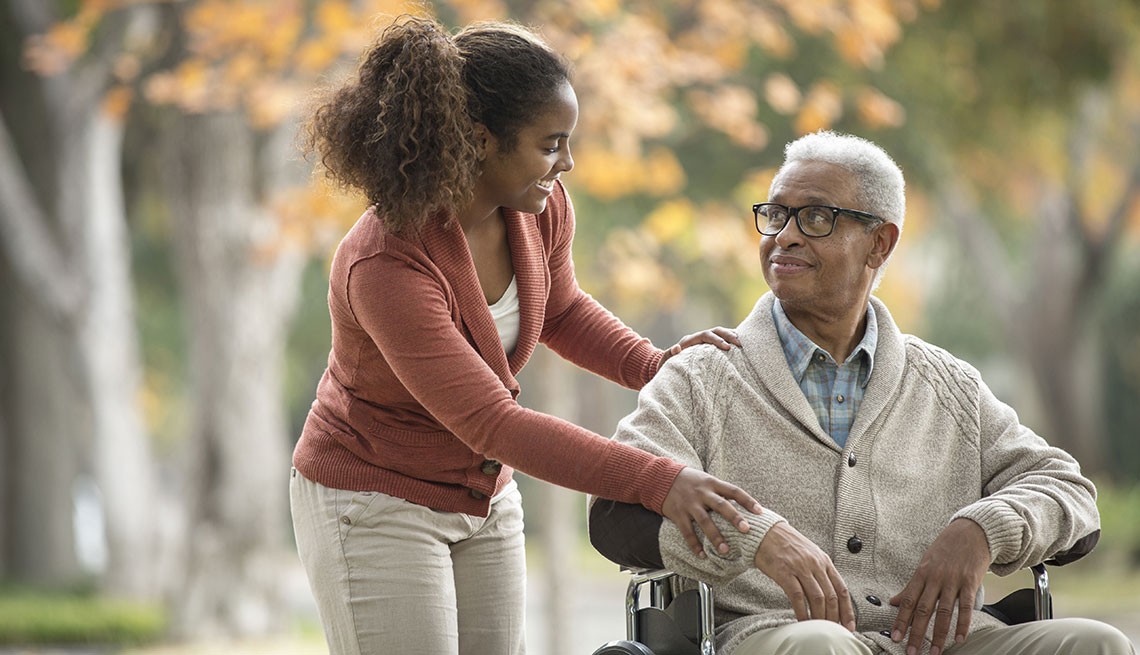Staying Fit


Sitting on a train headed into Manhattan, I’d been expecting my husband’s call. He was at the doctor, waiting for the MRI results on a torn hamstring to determine if he required surgery.
“It’s pretty bad,” he said, of the sports-related injury. “The muscle ripped completely off the bone and they need to reattach it as soon as possible. Oh, and the nerve is torn too.” He tried to sound casual with that last part, but I heard the concern. “They need to get a special surgeon …” I closed my eyes when I heard the words “... prevent paralysis.”


AARP Membership— $12 for your first year when you sign up for Automatic Renewal
Get instant access to members-only products and hundreds of discounts, a free second membership, and a subscription to AARP the Magazine.
I imagined his frustration and helplessness, being home 24/7 on crutches for eight weeks, unable to carry a cup of coffee to the table. My husband was not built for captivity of any sort.
How to process trauma
Jennifer Guttman, 56, from Pleasantville, New York, is a clinical psychologist and author of Beyond Happiness. She defines a traumatic event as any incident that causes lasting negative effects on a person’s physical, emotional, social or spiritual well-being. “There are things you can do to help work through the trauma, process it, soothe yourself and get to the other side,” she says. Here are some of Guttman’s tips.
Talk, talk, talk to friends and family. The more you talk, the more actively your brain can process the trauma.
Make time for self-care. Your nervous system is rattled to its core, so take time to care for yourself with whatever activities restore you.
Avoid substances. The use of substances, although they may provide temporary escape, actually prolongs the healing process.
Delegate tasks to others. Lean on the people around you so that you can focus on healing.
Stay in the present. Use mindfulness techniques, meditation, art therapy or grounding exercises to be in the now, instead of reliving the traumatic event.
Get professional help. If negative feelings escalate, enlist the help of a doctor or therapist.
There would be unavoidable weeks of waiting on him, the “thank-yous” wearing thin — a surefire recipe for resentment on both sides. Our daughter’s wedding was three weeks away. I tried to picture what a “first dance” with her father might look like on crutches and how I could minimize her disappointment. I managed to keep my tone light.
Processing the news of his surgery and the potential risks, I played out a worst-case scenario in my mind. This technique had always worked in the past, mentally making the “bad thing” small while zooming out to see the bigger picture, the passage of time and how, years from now, this would be a story we told.
But something unexpected happened. Reaching down for “more,” I felt the very bottom of my tank.
But I didn’t just feel it — I scraped it, like a shovel hitting a rock. Surely, you’ve heard of the “reserve tank,” one of those auto racing terms for people, especially caregivers, who are programmed to go-go-go? Just squeeze the tube a little harder, we are told, and more energy will come out.
I cannot sit in that waiting room. I cannot physically or mentally do that again. The thought appeared inside my head, fully formed.
Staring out at the approaching skyline on the train, I felt a sudden wave of nausea and a shortness of breath.
My heartbeat rose dramatically as a surge of adrenaline coursed through my body, similar to sensations I’d experienced when my children tumbled down the stairs or a car swerved into our lane, narrowly missing us. My body was suddenly electrified, bathed in some kind of fear stimulus that I couldn’t control.






































































More From AARP
My Journey as a Family Caregiver in the Wake of Grief
Five months after my mother’s death, I’m feeling more at peace
How to Find a Caregiver Support Group That Meets Your Needs
In-person and online communities can offer valuable help
Shining a Light on Hidden Military Caregivers
Ways to support and honor veterans and their families